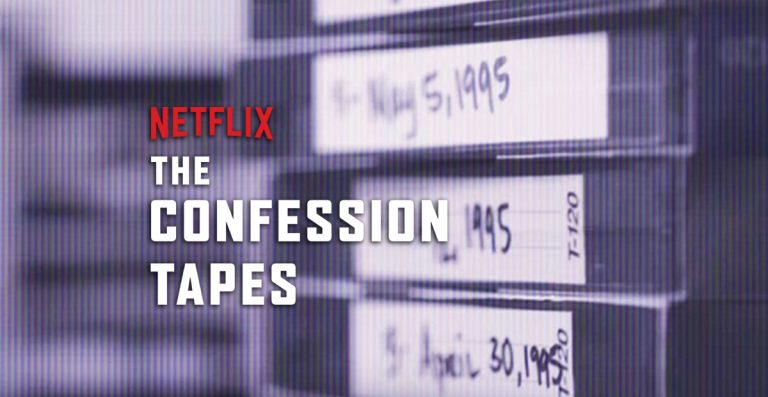Netflix’s new series, The Confession Tapes provides an insight into what goes behind the curtain of an arrest or a guilty plea. Time and again, we have seen the law and media taking their trials upon an alleged suspect, stamping him/her with the blame for the crime. This real life-based crime documentary gives a very regretful perception which leaves space for a dilemma.
The world keeps on seeing countless cases of confession by guilty criminals to the legal institutions. A notion predominantly arises when someone is held as a suspect. The media begin their trial. The judiciary passes their verdict. The guilty get locked behind bars. That’s how it is done right??
Unfortunately, history shows us flaws in this ‘JUSTICE’ system. There have been cases where the law enforcement have thrust a disbelief of the suspect’s memory. Through long hours of interrogation and using unlawful persuasive techniques, the police obtain a false confession from the suspect pleading guilty of the crime. They make these confession tapes and record every word through audio and video. In many instances, there was too much negative power influencing a suspect’s confession. We can call it ‘the deluded confession.’ What’s shocking is that the law uses these methods to frame an innocent suspect even when there is lack of substantial evidence. Even after denying their participation in the crime, the innocent suspects get tormented for hours leading them to question their innocence.
According to Stan B Walters, an interrogation expert, “It is possible to be a better lie detector who can spot people trying to deceive you. The people who try to cheat you usually deal with a lot of stress. This stress will have an unseen emotional change that will trigger a change in the behavior of the suspect being interrogated. When the suspect is lying, it puts immense stress when you propose that he/she is lying. What will follow is a portrayal of emotional stress, cognitive stress in a verbal and nonverbal behavior.” The police use these concepts to draw out conclusions or assume a suspect of guilt as soon as they start to show all these signs.
Even a child knows how intense an interrogation is! In all those valid cases in the series, what happened was, through hours and hours of questioning, the officers almost conditioned the innocent mind into a guilty one. They use polygraphs, lie detecting machine and various foolproof methods to create or fabricate evidence. What then usually follows is the distrust syndrome. Professor of forensic psychology Gísli Guðjónsson explains this behavior as “a condition where people develop a profound distrust of their memory and become susceptible to relying on external cues and suggestions from others.” Innocent suspects are puzzled into this nefarious syndrome by leading and suggestive interview techniques which clear the way for the creation of false memories. These conversations are emotionally so intense that one gets engulfed into doubting that he/she is the perpetrator of the crime. Author of The Memory Illusion, Julia Shaw, demonstrates in her book how a person is barred for life in spite of many denials and just one confession. She claims that the police officers deliberately induce false memories in the suspect.
In the True East episode, the primary suspects in the infamous murder of the Rafay Family got arrested by the use of a technique called Mr. Big (used in Canada), a covert investigative process used by undercover police to retrieve information in cold cases. In this method, the police pose as a fictitious criminal organization to make the suspects believe in them. Many defense attorneys called this as an unlawful technique which used threatening or bullying to obtain confessions from innocent suspects. In the Rafay family case, defense attorneys of Atif Rafay and Sebastian Burns tried defending them by claiming that they merely confessed just to brag in front of the crime leaders so that they could get their break into the organization. Michael Levine (Mr.Big Expert) quoted “Criminal Braggadocio is as common as dirt,” to which almost any suspect can fall prey. But both charged suspects are helpless as the court tried them based on their casual confessions.
In the series, we cannot ever conclude as to whether the victim is guilty or is innocent. The case of Wes Myers, in The Confession Tapes, is the perfect take on the deceptive sides of people with authority and power. The series depicts many cases presented from both perspectives. The moral and physical dilemma of the victims and their families is horrific. There have been cases where an innocent suspect is wrongly convicted of a crime and is imprisoned for 30-40 years, some even for life. After years of struggle and confinement, they get a chance of a retrial and then proven innocent!
India has seen many cases of wrongful convictions. Given below are just 2 of the many similar cases happening in India
HC acquits man of murder 14 yrs after he was jailed.
HC orders compensation for the man wrongly convicted.
There are innumerable cases that are still pending a trial and verdict. Similar cases which lack evidence and the alleged suspect still being dragged in and out of court denying them fair trials. So many innocent souls are waiting for justice! But the darker side of the void remains unearthed. The corruption and injustice grow stronger every day!!!



